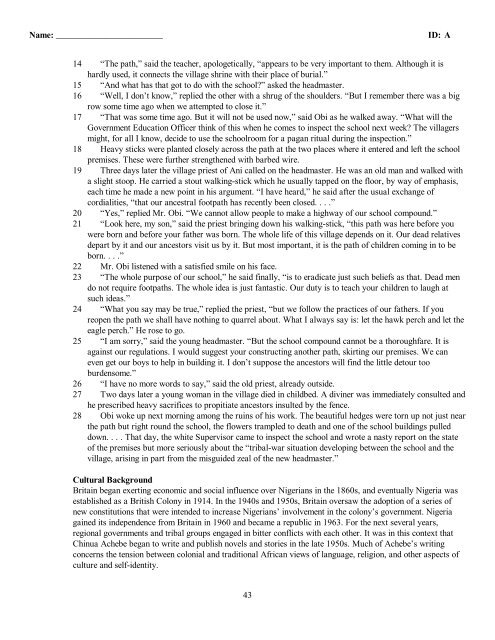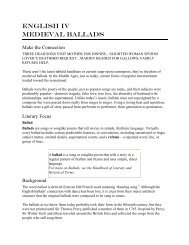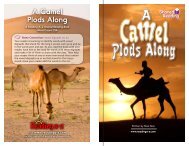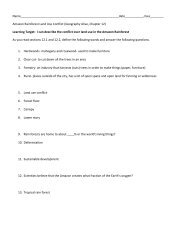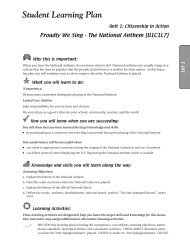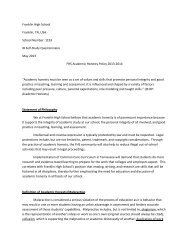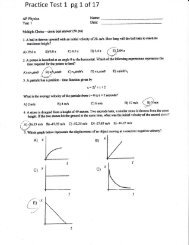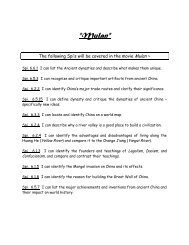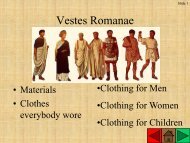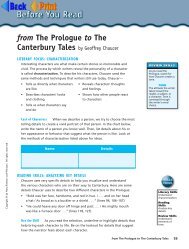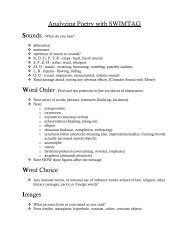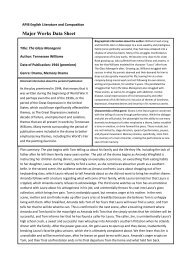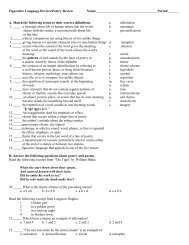ExamView - CCE Practice Test - Williamson County Schools
ExamView - CCE Practice Test - Williamson County Schools
ExamView - CCE Practice Test - Williamson County Schools
You also want an ePaper? Increase the reach of your titles
YUMPU automatically turns print PDFs into web optimized ePapers that Google loves.
Name: ________________________<br />
ID: A<br />
14 “The path,” said the teacher, apologetically, “appears to be very important to them. Although it is<br />
hardly used, it connects the village shrine with their place of burial.”<br />
15 “And what has that got to do with the school?” asked the headmaster.<br />
16 “Well, I don’t know,” replied the other with a shrug of the shoulders. “But I remember there was a big<br />
row some time ago when we attempted to close it.”<br />
17 “That was some time ago. But it will not be used now,” said Obi as he walked away. “What will the<br />
Government Education Officer think of this when he comes to inspect the school next week? The villagers<br />
might, for all I know, decide to use the schoolroom for a pagan ritual during the inspection.”<br />
18 Heavy sticks were planted closely across the path at the two places where it entered and left the school<br />
premises. These were further strengthened with barbed wire.<br />
19 Three days later the village priest of Ani called on the headmaster. He was an old man and walked with<br />
a slight stoop. He carried a stout walking-stick which he usually tapped on the floor, by way of emphasis,<br />
each time he made a new point in his argument. “I have heard,” he said after the usual exchange of<br />
cordialities, “that our ancestral footpath has recently been closed. . . .”<br />
20 “Yes,” replied Mr. Obi. “We cannot allow people to make a highway of our school compound.”<br />
21 “Look here, my son,” said the priest bringing down his walking-stick, “this path was here before you<br />
were born and before your father was born. The whole life of this village depends on it. Our dead relatives<br />
depart by it and our ancestors visit us by it. But most important, it is the path of children coming in to be<br />
born. . . .”<br />
22 Mr. Obi listened with a satisfied smile on his face.<br />
23 “The whole purpose of our school,” he said finally, “is to eradicate just such beliefs as that. Dead men<br />
do not require footpaths. The whole idea is just fantastic. Our duty is to teach your children to laugh at<br />
such ideas.”<br />
24 “What you say may be true,” replied the priest, “but we follow the practices of our fathers. If you<br />
reopen the path we shall have nothing to quarrel about. What I always say is: let the hawk perch and let the<br />
eagle perch.” He rose to go.<br />
25 “I am sorry,” said the young headmaster. “But the school compound cannot be a thoroughfare. It is<br />
against our regulations. I would suggest your constructing another path, skirting our premises. We can<br />
even get our boys to help in building it. I don’t suppose the ancestors will find the little detour too<br />
burdensome.”<br />
26 “I have no more words to say,” said the old priest, already outside.<br />
27 Two days later a young woman in the village died in childbed. A diviner was immediately consulted and<br />
he prescribed heavy sacrifices to propitiate ancestors insulted by the fence.<br />
28 Obi woke up next morning among the ruins of his work. The beautiful hedges were torn up not just near<br />
the path but right round the school, the flowers trampled to death and one of the school buildings pulled<br />
down. . . . That day, the white Supervisor came to inspect the school and wrote a nasty report on the state<br />
of the premises but more seriously about the “tribal-war situation developing between the school and the<br />
village, arising in part from the misguided zeal of the new headmaster.”<br />
Cultural Background<br />
Britain began exerting economic and social influence over Nigerians in the 1860s, and eventually Nigeria was<br />
established as a British Colony in 1914. In the 1940s and 1950s, Britain oversaw the adoption of a series of<br />
new constitutions that were intended to increase Nigerians’ involvement in the colony’s government. Nigeria<br />
gained its independence from Britain in 1960 and became a republic in 1963. For the next several years,<br />
regional governments and tribal groups engaged in bitter conflicts with each other. It was in this context that<br />
Chinua Achebe began to write and publish novels and stories in the late 1950s. Much of Achebe’s writing<br />
concerns the tension between colonial and traditional African views of language, religion, and other aspects of<br />
culture and self-identity.<br />
43


